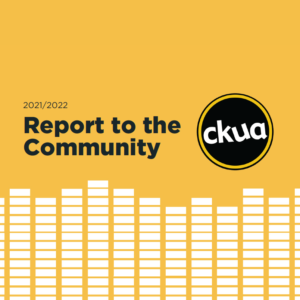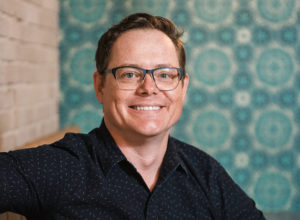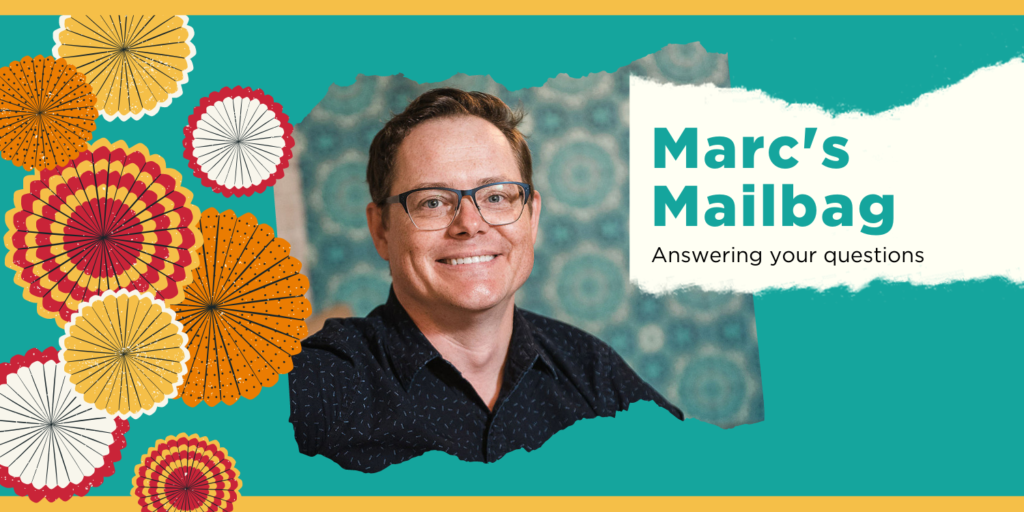
“Skate to where the puck is going.” – Wayne Gretzky
The most common comment I hear from listeners these days relates to CKUA appealing to a younger audience than we have for a very long time.
It’s true. We are.
Why? It all comes down to three data sets. And a little bit of math. Madame Renaud, my Grade 12 math teacher, would be proud.
The first and third data sets come from Fred Jacobs, a legendary radio audience research analyst. These data sets are US-based, but the generational similarities are also valid in Canada. We use US results because Canada’s professional, donor-supported public radio sector is too small—there are just two stations.
Data set #1.
The average age of donor-supported public radio listeners is pushing mid-60s. This is also consistent with CKUA’s internal data around our longstanding listeners.
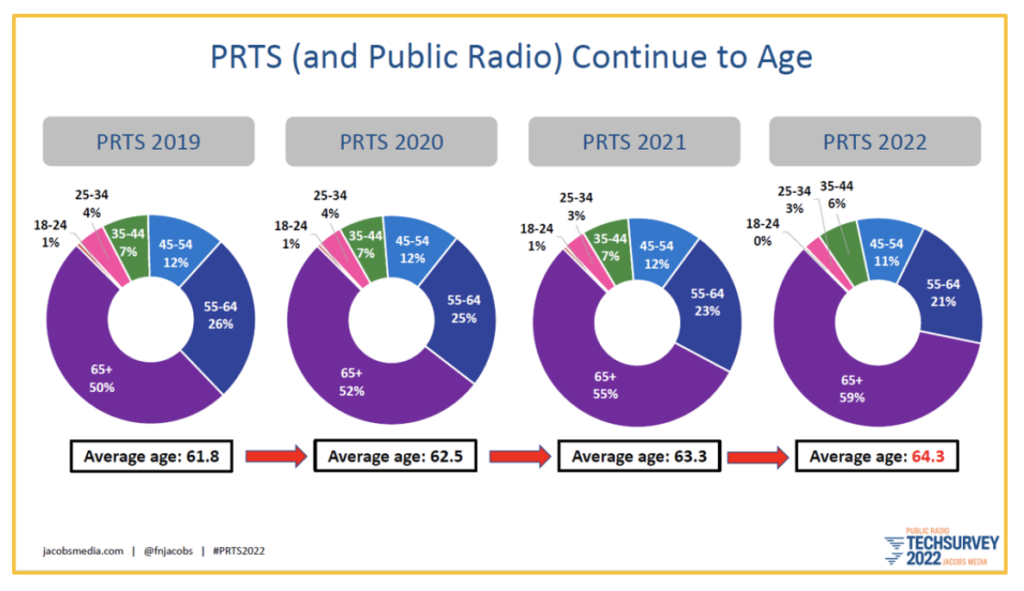
At this point, you probably ask: “Ok, so why are you going after younger listeners?”
Data set #2.
The following graph shows the age profile of the 5,009 CKUA donors last year for whom we know their ages.
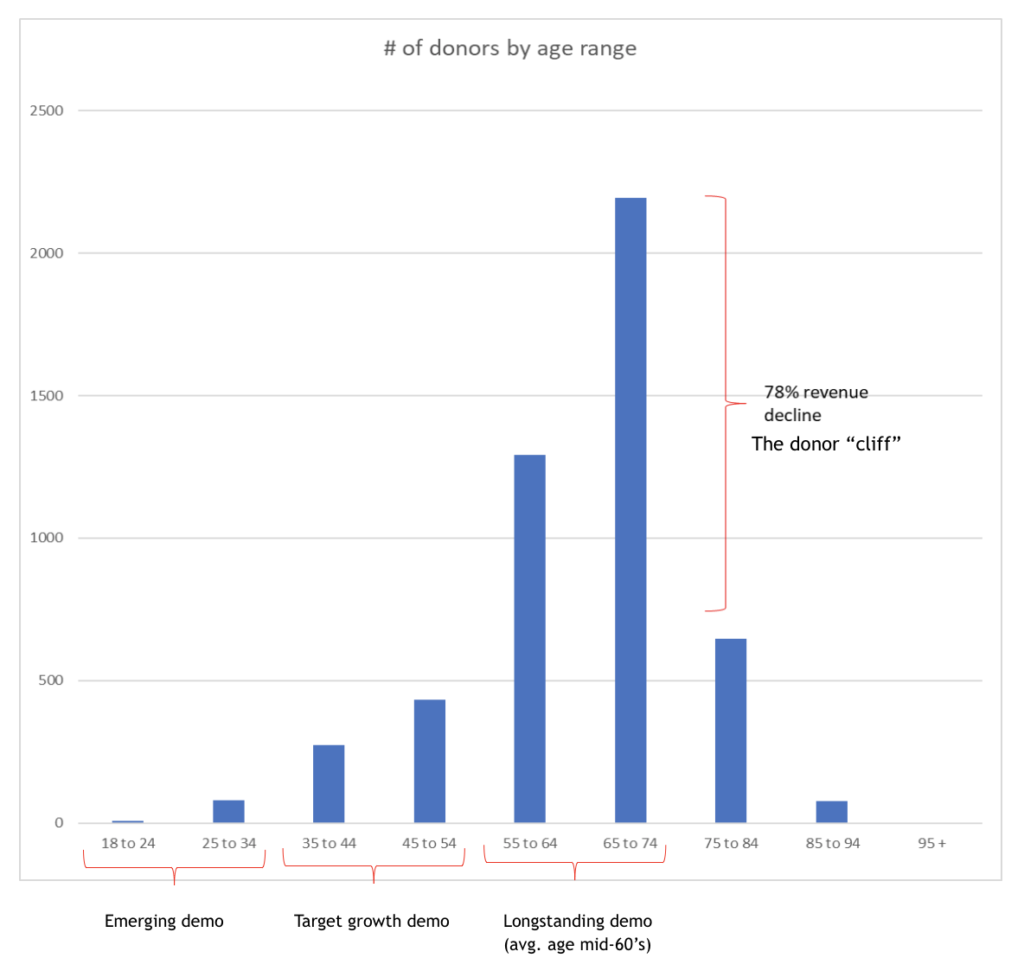
You’ll notice the cliff-like drop-off that happens when we transition from 74 to 75 years of age. That means that between the age of 65 and 74, our audience has a steep decline in giving potential that amounts to somewhere between $1,000,000 and $1,500,000.
Demographically, it makes sense. By the time people are in their 70s, they will likely have been retired for a few years. Retirement usually equals fixed income. The rest of the world continues to get more expensive, while the price to access CKUA ($0) remains the same. It’s only natural that giving to CKUA would trail off during that time. We hear it from donors regularly.
It’s time for math!
If the average age of our longstanding listeners and donors is around 64, and 78% of them stop donating at, say, age 72, that means that if we don’t do something to change that trajectory now, we have roughly 8 to 10 years until, well, you get the idea.
So, what do we do with this information?
Option 1: We could ignore the data, forge ahead without making changes, and hope everything works out.
Or
Option 2: We can broaden our horizons, invest, and seek out and welcome a younger demographic than we have historically sought.
Hope is not a strategy.
Cultivating a next-generation audience that will become the donors to carry on the CKUA mantle in the next ten years means making adjustments now. Most donors don’t turn on CKUA today and become donors tomorrow. It takes many years for CKUA to become something so personal that you want to support this free public service financially. So, for example, a listener in their 40s now becomes a donor in their 50s when they are moving into their peak earning years and have a little more disposable income. It’s the donor circle of life, if you will.
CKUA doesn’t exist on rainbows and unicorns (or government funding). We have bills to pay and regulatory obligations to fulfill. So, we must be strategic and, dare I say, capitalistic about the decisions we make if we want to shepherd CKUA into another 100 years of community through music, arts, and culture. That means we must skate to where the demographic and financial puck is going. In our case, that’s the Gen X and Early Millennial crowd—but that’s not to say that all aren’t welcome. We just need to have a focal point upon which to build momentum.
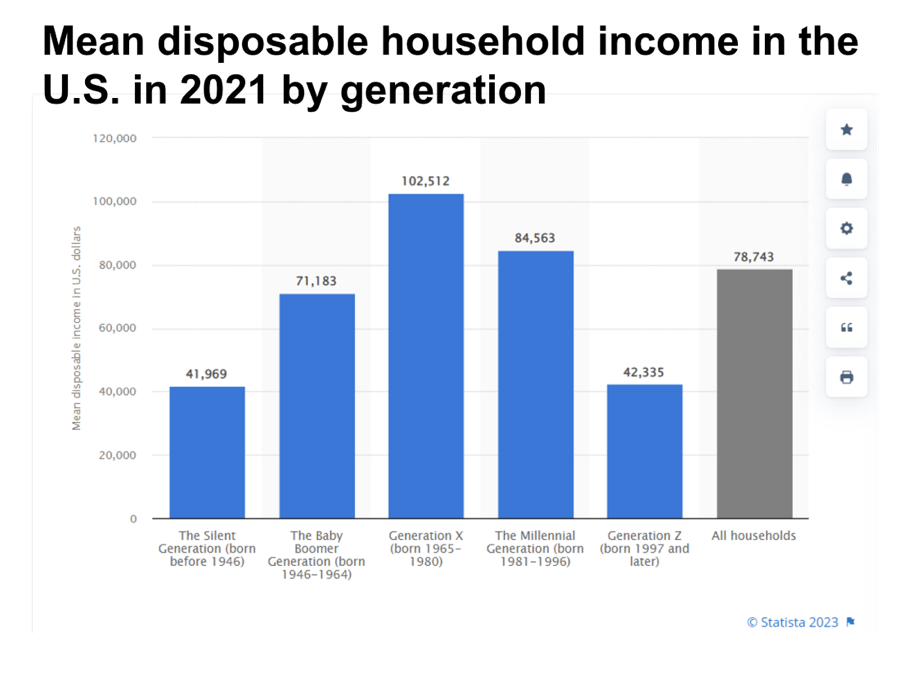
The challenge is that change doesn’t happen overnight. This kind of change is a 10 to 15-year process. So, unlike commercial radio, which would flip formats while you’re asleep one night, we must do our best to honour our longstanding listeners and donors and their preferences while simultaneously, as opportunities allow, introducing new hosts, music, programming, and ways of connecting that appeal to a younger generation of listeners and future donors.
It doesn’t keep everyone happy.
Are we making changes too fast? Or not fast enough? Do we have to make changes at all? Or are they long overdue?
That’s the beauty and the curse of an emotional medium like radio. It’s personal. And we all have our opinions.
CKUA staff and hosts have one job above all others: to be stewards of the past, present and future of CKUA. After 95 years, there has been a lot of change and variations. One can only imagine what CKUA will look like in another 95 years.
The changes we make today aren’t in spite of a generation, as some fear. It’s the exact opposite. If we don’t make changes and seek to usher in a next era of listeners and donors, the hard-fought battles of 1997 to bring the station back, the tens of thousands of volunteer hours, the contributions of 100’s of staff and hosts, and the tens of millions of dollars the community has contributed since then to keep this station we all love on the air, were for nothing. Despite how difficult and uncomfortable it may be, all of us—staff, hosts, volunteers, listeners, and donors—are responsible for handing CKUA over to the future. That is our collective legacy.
Change is working.
Our recent report to the community indicates that our audiences are growing. More people of all ages are listening to CKUA now than in a long time. And they are engaging in more ways. We are bucking the trend of donor-supported public radio in the interest of CKUA’s future. Whether or not we all agree with the tactics and choices to get there, it’s working.
Marc Carnes, CKUA CEO
We thank you for your support, and as always, we invite your questions and suggestions at feedback@ckua.com.


